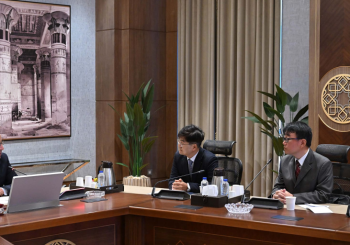The state of severe polarisation in Turkey has swelled after the slim victory of “Yes” with 51.4 percent in the nation’s referendum that was held to make a constitutional amendment, which will turn Turkey from its parliamentary system into a new executive presidential system.
Protests swept over Turkey after the results had been announced, both who are celebrating the win in the national referendum and who opposed the results took the streets. The nine-month state of emergency in Turkey is set to extend following the referendum win.
The executive presidential system would give the president of Turkey new sweeping powers. These powers will include a five-year-tenure to the president, with a maximum of two terms. The Turkish president will also be able to appoint ministers and one or several vice-presidents.
The power of publishing decrees will shift from the cabinet to the president who will intervene in appointing judiciary members, and will hold executor powers instead of the prime minister and parliament.
The Turkish President Recep Tayyip Erdogan claimed that these measures and changes are needed to address the challenges and insurgency that are taking over the country after the failed attempted coup that occurred last year.
In light of the failed coup, about 100,000 turks were sacked from their positions and thousands were arrested.
Erdogan said that he will pursue an immediate referendum on the restoration of death penalty once his new powers come into force. This move is thought to be the end of Turkey’s negotiations to join the European Union (EU).
The main opposition Republican’s People’s Party (CHP) asked for a recount of 60 percent of the votes citing irregularities, including usage of unstamped ballot papers. However, Head of the electoral body said that the Yes vote is valid. The turnout was estimated at 85 percent.
New presidential and parliamentary elections are set to take place in November 2019. With the new referendum that changes the Turkish system, Erdogan may remain in office until 2019.
Turkey’s three biggest cities –Istanbul, Ankara, and Izmir- voted No. The new changes may help feed a new authoritarian regime in Turkey that gives exceptional power to the Turkish president. Yet, Erdogan says that this is the system that runs the United States (U.S.) and France.
In his victory speech, Erdogan called on other nations to respect the will of Turkish people. Nonetheless, international reactions were fast to surface, urging Erdogan to seek “the broadest possible consensus” in implementing the new changes, particularly that about 48.6 percent voted No.
In a joint statement, German Chancellor Angela Merkel and Foreign Minister Sigmar Gabriel warned that the tight results of this referendum reveals the severe polarization within the Turkish society.
The modern Turkish Republic was founded by Mostafa Kemal Ataturk, a Turkish army officer and a revolutionary who abolished the Ottoman empire and turned it into the current modern republic that is based on a parliamentary system. Erdogan’s referendum introduces radical changes in the way the Turkish state will be governed.







Comments (0)